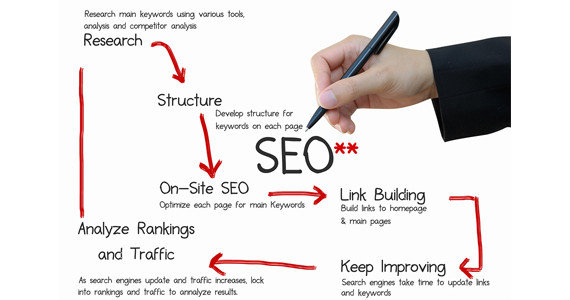WHY DO YOU NEED SEO?
If you are trying to develop traffic from popular search engines like Google, Bing and Yahoo, search optimization may be able to help you. When your web pages are optimized, there is a much better chance they will appear for the kinds of specific searches your customers or readers are utilizing. This will bring you what is called “organic” traffic from those search engines, and with that traffic may come new readers and new customers for your products.
HOW DOES IT WORK?
Optimizing a web page relies on a number of well-established conventions in how information is organized on the web. The markup language that is used to format information on web pages and in web browsers provides a set of “clues” about a page’s subject matter.
All of these “clues” or markers together are known as “metadata.” This includes things like title, subject headings, major keywords and keyphrases, image titles, the frequency of keywords and keyphrases and so forth.
By making sure all of the metadata on your web page is consistent and is related to the page’s subject matter, you can optimize that page and make it much easier for search engines to understand.
SEO STRATEGIES
How to optimize a web site or a set of web pages is as varied and complex a subject as what to say on a first date. The reason is because search engines keep their methods of evaluating web pages concealed so as to prevent their systems from being fooled into showing bad results for certain kinds of searches.
When all is said and done, when marketing a site often the best strategy is simply to follow the advice of the search engines themselves. If a web site posts good content, its pages load relatively fast, the site is properly organized and it is updated on a regular-enough basis to provide ongoing value and interest for readers, it is much more likely to appear high in search results.
If all of the pages are well optimized with relevant and specific metadata, each of them will have the best chance of climbing through the search results and possibly arriving on the front page.
BLOGS AND PAGERANK
Sites that are updated regularly are of far greater interest to search engines generally because they have the best chance of having the most recent information. This is one of the reasons blogs have become so important and popular. Software like WordPress gives authors a way to easily organize continually updated content.
Pagerank is a system originally invented by Google to measure the “authority” of a web site. Getting a high pagerank meant that the site was a reliable source of information. Getting a link from a site with a high pagerank was seen as a “vote of confidence” in the linked site.
Search optimization is a complex subject. It always helps to consult an expert when deciding how best to focus and organize your web pages for maximum effectiveness.




